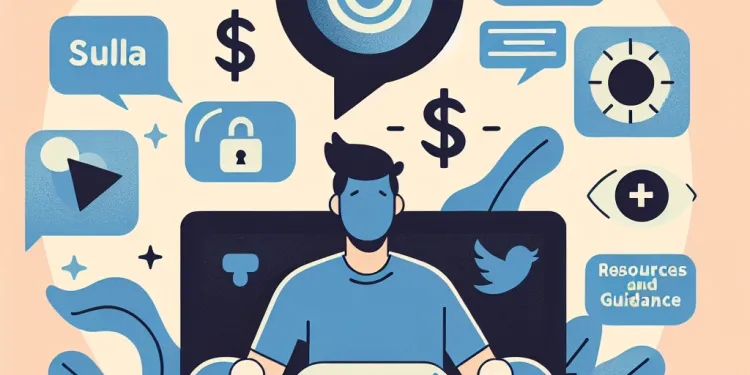
Find Help
More Items From Ergsy search
-

Mental Health Support Resources for Families
Relevance: 100%
-

Mental Health Support for Families: Resources and Strategies
Relevance: 94%
-

Mental Health Support for Families: Resources and Helplines
Relevance: 94%
-
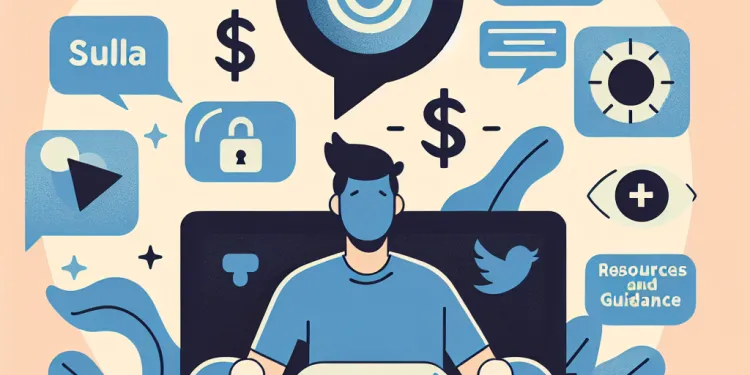
Mental Health Support for Families: Resources and Guidance
Relevance: 94%
-

Mental Health Resources for Families
Relevance: 92%
-

Mental Health Support for Families - Latest Resources and Guidance
Relevance: 90%
-

Advancements in Mental Health Resources for Families
Relevance: 88%
-

Mental Health Support Resources in the UK
Relevance: 84%
-

Accessing Mental Health Support Resources in the UK
Relevance: 78%
-

Mental Health Impact of Cost of Living Crisis and Support Resources
Relevance: 70%
-

Mental Health Support Services in the UK
Relevance: 66%
-

What mental health resources are available for seniors?
Relevance: 65%
-

Can primary care support workers access mental health support?
Relevance: 59%
-
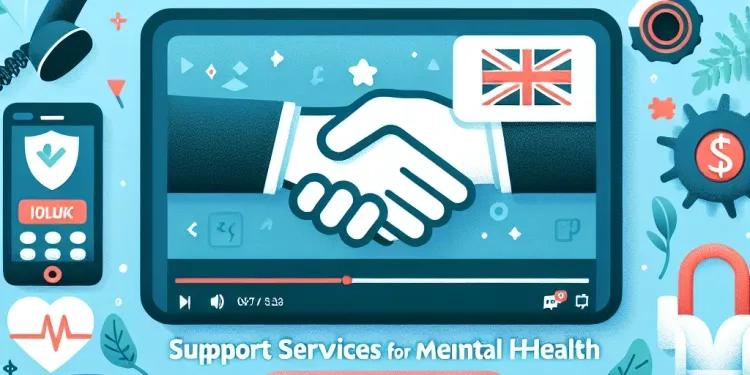
Support Services for Mental Health Amid Economic Uncertainty
Relevance: 58%
-

NHS Unveils Revolutionary Mental Health Support Initiative
Relevance: 55%
-

Mental Health: Laura's Story | NHS
Relevance: 53%
-
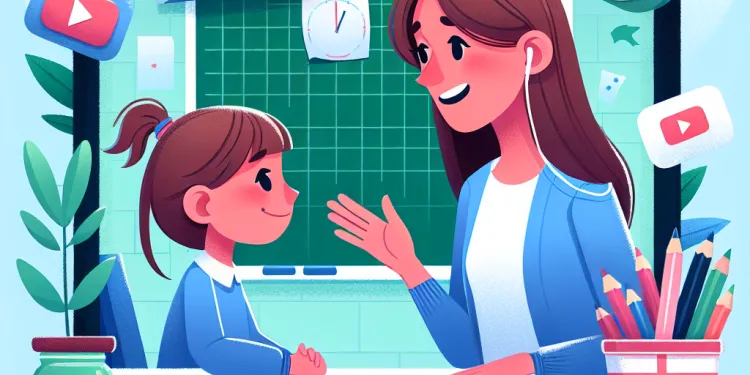
Understanding Mental Health in Children
Relevance: 52%
-

Navigating Mental Health Services for Children and Adolescents
Relevance: 50%
-

Current Challenges in Youth Mental Health Services
Relevance: 50%
-

Tackling Youth Mental Health: Community Initiatives and Solutions
Relevance: 48%
-

Impact of Rising Living Costs on Family Health
Relevance: 48%
-
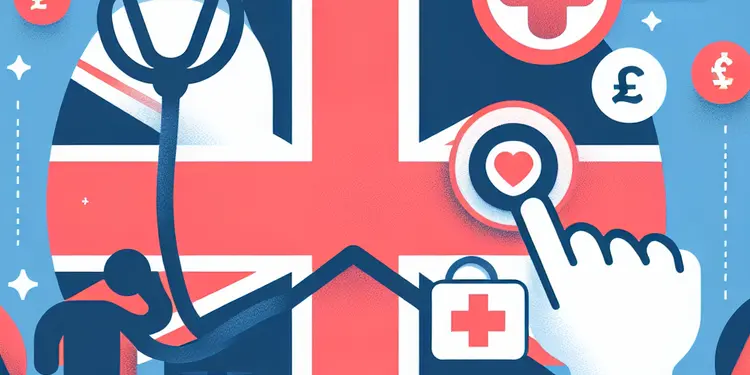
Can community helpers access physical health resources?
Relevance: 46%
-

What is the impact of obesity on mental health?
Relevance: 45%
-

Mental Health Services Struggle to Cope Amid Record Demand
Relevance: 44%
-

Addressing the Cost of Living Crisis: Community Support and Resources
Relevance: 44%
-

New Mental Health Strategy Launched to Address Youth Anxiety Epidemic
Relevance: 44%
-

How can families support a member with autism?
Relevance: 43%
-

Short Films About Mental Health - Trauma PTSD
Relevance: 43%
-

Essential Tips for Mental Health and Well-Being Amidst Rising Living Costs
Relevance: 43%
-

Addressing the Rising Cost of Living: Community Support and Resources
Relevance: 43%
-

What support is available for families of individuals with PIMD?
Relevance: 43%
-

Can relationship problems be resolved to improve mental health?
Relevance: 43%
-
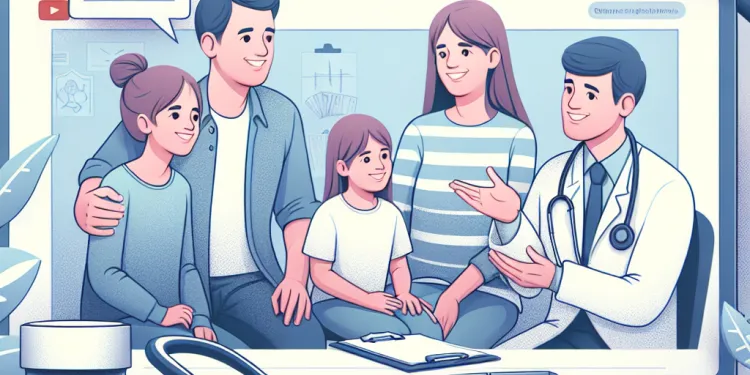
Managing Chronic Illness Within the Family
Relevance: 42%
-
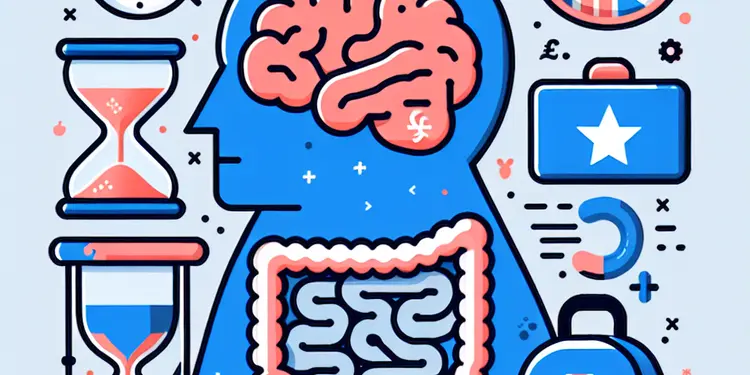
Can gut health affect mental health as one ages?
Relevance: 42%
-

Short Films About Mental Health - Anxiety
Relevance: 42%
-

What is the role of mental health assessments in indefinite sentences?
Relevance: 42%
-

How can family members support someone with postnatal depression?
Relevance: 41%
-

How can community helpers get mental health support?
Relevance: 41%
-

Short Films About Mental Health - Personality Disorders
Relevance: 41%
-

Can ending a toxic relationship improve my mental health?
Relevance: 41%
Mental Health Support for Families: Resources and Guidance
Understanding Mental Health
Mental health is an essential aspect of overall well-being, impacting every area of life, including relationships, work, and physical health. For families, understanding mental health issues and recognizing their signs is the first step towards offering effective support. Awareness can help reduce stigma and encourage open conversations about mental health within families.
Recognizing When Help is Needed
Identifying when a family member needs mental health support can be challenging. Look for behavioural changes, withdrawing from social interactions, mood swings, increase in substance use, or a significant drop in performance at work or school. Once these signs are recognized, it is crucial to take action promptly.
Available Resources in the UK
The UK offers numerous resources to support families dealing with mental health issues. The National Health Service (NHS) provides free mental health services, including counselling, therapy, and crisis support. Charities such as Mind and Samaritans also offer helplines, online resources, and local support groups. For children and adolescents, Childline and YoungMinds are vital resources offering tailored advice and support.
Accessing Professional Support
Professional support is often necessary for managing mental health conditions effectively. Families can approach their GP for referrals to mental health specialists like psychologists, psychiatrists, or counsellors. Early intervention through professional support can significantly improve outcomes for individuals experiencing mental health issues.
Supporting Each Other
Families play a crucial role in supporting members with mental health issues. Encourage open and honest conversations about feelings and experiences. Show empathy and understanding, offering a non-judgmental listening ear. It's also important to educate oneself about mental health to better support affected family members.
Self-Care for Family Members
Supporting a loved one with mental health issues can be emotionally taxing. It's vital for family members to practice self-care, ensuring they do not neglect their own mental health. This can include seeking their own counselling, joining support groups for carers, or simply taking time out for relaxation and hobbies.
Conclusion
Mental health issues within families can be challenging, but with the right knowledge, resources, and support, families can navigate these difficulties successfully. Accessing the extensive support in the UK, fostering open communication, and ensuring self-care are key steps in promoting mental well-being within families.
Mental Health Support for Families: Resources and Guidance
Understanding Mental Health
Mental health is about how we think, feel, and act. It is very important for our lives. It affects our relationships, work, and body health. Families need to understand mental health issues and learn to see the signs. This can help start open talks about mental health and make it less scary.
Recognizing When Help is Needed
It can be hard to know when someone in the family needs help. Look out for changes like being more alone, big mood changes, drinking or using drugs more, or doing worse at school or work. If you see these signs, it is important to get help quickly.
Available Resources in the UK
In the UK, there are many places that offer help with mental health. The NHS has free services like talking therapies. Charities like Mind and the Samaritans have helplines and support groups. For kids and teenagers, Childline and YoungMinds have special advice and support.
Accessing Professional Support
Sometimes, seeing a professional can really help with mental health problems. Families can talk to their doctor. Doctors can help find a psychologist, psychiatrist, or counsellor. Getting help early can make a big difference.
Supporting Each Other
Families are very important in helping loved ones with mental health issues. It's good to talk openly about feelings. Listen with care and don’t judge. Learn about mental health so you can understand and help better.
Self-Care for Family Members
Helping someone else can be hard, so it’s important to also take care of yourself. Find time to relax and do things you enjoy. If you need to, talk to a counsellor or join a support group for families.
Conclusion
Mental health issues in families can be tough. But with the right help and support, families can manage well. Use the resources in the UK, talk openly, and take care of yourself to keep your family mentally healthy.
Frequently Asked Questions
What is the best way to support a family member who is experiencing mental health issues?
The best way to support a loved one is by listening without judgment, encouraging them to seek professional help, and offering your time and companionship. It's important to educate yourself about their condition and be patient and understanding.
Where can I find mental health resources in the UK?
You can find mental health resources through the NHS website, Mind, Rethink Mental Illness, and local mental health charities. Your GP can also provide information and referrals.
How do I approach someone about their mental health without offending them?
Approach the conversation with empathy and concern. Choose a private setting, express your observations without making assumptions, and offer your support. Phrases like 'I've noticed that you seem [specific behavior], and I'm worried about you' can help.
What are some signs that a family member might need mental health support?
Common signs include changes in mood, withdrawal from social activities, changes in eating or sleeping patterns, decreased performance at work or school, and expressions of hopelessness or worthlessness.
How can I find a mental health professional in the UK?
Start by speaking with your GP, who can refer you to mental health services. You can also use online directories like the British Association for Counselling and Psychotherapy (BACP) or the UK Council for Psychotherapy (UKCP).
Are there online mental health resources available?
Yes, there are many online resources available, including NHS self-help guides, Mind and Rethink Mental Illness websites, and platforms like BetterHelp and Talkspace for online therapy.
What can I do if my loved one refuses to seek help?
Encourage them gently and provide them with information about the benefits of seeking help. Sometimes, sharing stories of others who have benefited from support can help. If they continue to refuse, ensure they know you are there for them and maintain open lines of communication.
How can I take care of my own mental health while supporting a family member?
It's important to set boundaries, take time for self-care, and seek support for yourself, whether that’s through friends, support groups, or a mental health professional. Ensuring you are in a good place mentally will better equip you to help others.
What are some useful mental health apps available in the UK?
Popular mental health apps include Headspace for meditation, Calm for relaxation and sleep, SilverCloud for cognitive behavioural therapy (available through the NHS), and Moodpath for mood tracking and assessments.
What support is available for children and young people struggling with mental health issues?
Services such as Childline, YoungMinds, and Kooth provide tailored support for children and young people. The NHS also offers Child and Adolescent Mental Health Services (CAMHS) which can be accessed through a GP or school.
What role can schools play in supporting a child's mental health?
Schools can provide a range of support, including counselling services, mental health education, and a supportive environment. They can also identify early signs of mental health issues and connect families with external resources.
How can we reduce the stigma around mental health in our family?
Education is key. Encourage open discussions about mental health, share accurate information, and challenge stereotypes or negative comments. Leading by example and showing empathy and support can help change attitudes.
Are there financial supports for families dealing with mental health issues?
Yes, some forms of financial support include Personal Independence Payment (PIP), Employment and Support Allowance (ESA), and Universal Credit. Charities like Mind and Rethink Mental Illness can provide guidance on navigating these benefits.
What should I do in a mental health crisis?
In a mental health crisis, call 999 if immediate help is needed or take the person to A&E. For urgent but non-life-threatening situations, contact NHS 111 or a local crisis team. Mental health charities often have crisis helplines as well.
How can we create a supportive home environment for mental health?
Create a supportive home environment by maintaining open communication, offering emotional and practical support, encouraging healthy lifestyle choices, and making time for enjoyable activities together. Demonstrating compassion and understanding is crucial.
How can you help a family member with mental health problems?
Here are some simple ways to help:
- Listen: Let them talk about their feelings. Show that you care.
- Learn: Find out more about mental health to understand them better.
- Encourage: Tell them it's okay to ask for help from a doctor or therapist.
- Be patient: Give them time to feel better. Don't rush them.
- Stay in touch: Call or visit regularly. Show you are there for them.
Remember, you can also talk to someone for advice on how to help.
The best way to help someone you care about is to listen to them without judging. Tell them it is okay to talk to a doctor or a counselor. Spend time with them and be a good friend. Learn about what they are going through and be patient and kind.
Where can I get help for my feelings in the UK?
Do you need help with how you feel? Here is where you can go:
- Talk to your doctor.
- Call a help line, like Samaritans.
- Visit a local support group.
Using a picture or asking a friend to help might make it easier. Remember, it's okay to ask for help.
You can find help for mental health on the NHS website, Mind, and Rethink Mental Illness. Local charities can also help you. Your doctor (GP) can give you information and tell you where to get more help.
How can I talk to someone about their feelings without upsetting them?
Do you want to talk to someone about how they feel? Here are some tips to help you:
- Be kind: Use soft and gentle words.
- Listen carefully: Let them speak and show that you care.
- Ask if it is okay: Before you start, make sure they are ready to talk.
Remember, talking about feelings can help us feel better.
Talk to the person in a kind way because you care. Find a quiet place to talk. Tell them what you have seen without guessing why. Tell them you want to help. You can say, "I’ve seen you [act a certain way], and I’m worried about you."
How can you tell if someone in your family needs help with their feelings?
Here are some signs to look for:
- If they seem very sad or worried a lot.
- If they don't want to do things they used to like.
- If they get angry easily or act differently than before.
- If they have trouble sleeping or eat much more or less than usual.
- If they say they feel lonely or talk about not wanting to be here.
If you notice these signs, talk to someone you trust, like a parent or teacher.
It might help to use pictures, drawings, or stories to understand feelings better.
Watch for signs like mood swings, not wanting to be with friends or family, changes in how much they eat or sleep, doing worse at school or work, and feeling sad or like they don't matter.
If you need help, try talking to a trusted friend or a counselor. Writing down your feelings can be good too. Apps with calming sounds or deep-breathing exercises might help you feel better.
How can I find someone to help with my feelings in the UK?
Do you need help feeling better? You can talk to a special person who knows a lot about feelings. This person can help you if you are feeling sad, worried, or upset.
Here is how you can find someone who can help:
- Ask your doctor. They can tell you where to go.
- You can call a helpline. Helplines have people ready to listen and help you.
- Look online for local support groups. These groups are places where you can talk to other people who understand.
- Ask a trusted adult, like a teacher or family member, to help you find someone.
It's okay to ask for help. Talking to someone can make you feel better.
First, talk to your doctor. They can help you find mental health services. You can also look online for help. Try the British Association for Counselling and Psychotherapy (BACP) or the UK Council for Psychotherapy (UKCP).
Can I find help for mental health online?
Yes, you can find help online if you feel sad, worried, or confused. Here are some tips:
- Use websites or apps that talk about feelings.
- Look for videos that explain feelings in simple ways.
- Ask a grown-up to help you find good and safe sites.
- Try using tools like calming music or breathing exercises online.
- Always talk to someone you trust if you need help.
These can help you feel better and understand your feelings more.
Yes, there are lots of online places to help you. You can find NHS self-help guides, and visit websites like Mind and Rethink Mental Illness. There are also websites like BetterHelp and Talkspace where you can talk to a therapist online.
What can I do if someone I care about won't get help?
Talk kindly to them about why getting help is good. You can tell them stories about other people who got help and how it helped them. If they still say no, make sure they know you care and are ready to talk whenever they are.
How can I take care of my own feelings while helping my family?
It is important to look after your own feelings. This makes you strong to help others. Here are some simple ways to take care of yourself:
- Talk to someone: Share your feelings with a friend or someone you trust.
- Take a break: Rest and do something you enjoy, like reading or walking.
- Eat and sleep well: Eat healthy food and sleep enough to feel good.
- Ask for help: It’s okay to get support from others, like a doctor or teacher.
- Use relaxing tools: Try deep breathing or listening to calm music to feel better.
Remember, you need to be okay to help your family. Take care of you first!
It's good to make rules for yourself. Take breaks to look after yourself. You can ask friends or join a group for support. You can also talk to a doctor if you need help with feelings. Feeling happy makes it easier to help other people.
What are some helpful mental health apps in the UK?
Here are some apps that can help you feel better:
- Calm: This app helps you relax and sleep better with stories and music.
- Headspace: This app teaches you how to meditate and feel calmer.
- Moodpath: This app checks your feelings and gives you advice.
- Wysa: This is like talking to a friendly robot that helps you feel better.
It's good to talk to someone you trust, like a family member or teacher, about how you feel.
Here are some apps that help with feeling good:
- Headspace helps with meditation. Meditation can help you feel calm.
- Calm helps you relax and sleep better.
- SilverCloud helps with a type of talking therapy called cognitive behavioural therapy. You can use it through the NHS.
- Moodpath helps you check how you are feeling and track your mood.
What help is there for kids and young people with mental health problems?
If you feel sad, worried, or scared a lot, there are people who can help you. Here are some ideas:
- Talk to a trusted adult: Find someone you trust, like a parent, teacher, or school counselor. Tell them how you feel.
- Call a helpline: There are phone lines where you can talk to someone who will listen. They can help too.
- Visit the doctor: A doctor can help you understand your feelings and give advice.
- Join a support group: Meet other kids or teens who feel the same way. You can help each other.
- Use apps or websites: Some apps are made to help with big feelings. Ask an adult to find safe ones for you.
There are places you can go if you need help. Childline, YoungMinds, and Kooth are here to support children and young people. You can also get help from doctors and schools through CAMHS, which is part of the NHS.
How can schools help with a child's feelings and well-being?
Schools can help in many ways. They can have people to talk to when you're upset. They can teach about feeling good and have a safe place for everyone. Schools can notice if someone seems sad or worried and can tell families about people who can help outside of school.
How can we make people feel better about mental health in our family?
It is important to talk about feelings. You can ask family members how they feel. This helps everyone feel understood.
Here are some tips to help:
- Talk about mental health like you talk about the weather. Make it normal to chat about.
- If someone feels sad or worried, listen to them. Show you care.
- Learn more about mental health together. You can read a book or watch a video.
- Use kind words. Don’t say things that might hurt others’ feelings.
- Be patient and give support. Let people know it is okay to ask for help.
Remember: Being kind and listening can help everyone feel better.
Learning is important. Talk openly about feelings and mental health. Share true information and say when you hear wrong or hurtful things. Show kindness and support to others. This can help people think in a better way.
Can families get money help if someone has mental health problems?
If someone in your family has trouble with mental health, you might be able to get money help. This help can make things easier.
You can:
- Look for groups that give out money to help with costs.
- Ask the doctor for advice on money help.
- Check if the government can give you money help.
Remember, it's okay to ask for help!
Yes, there is money help you can get. Some money help includes Personal Independence Payment (PIP), Employment and Support Allowance (ESA), and Universal Credit. Charities like Mind and Rethink Mental Illness can give advice about how to get this money help.
What to do if you feel very upset or scared?
Feeling very upset or scared is okay. Here are some steps to help you:
- Talk to someone you trust. This could be a family member or friend.
- Call a special helpline for help. They are there to listen and help you.
- Visit a doctor or a healthcare center to talk about how you feel.
- Breathe slowly and try to stay calm. Count to five as you breathe in, and count to five as you breathe out.
- Write down your feelings in a notebook. This can help you understand them better.
Remember, you are not alone. It's okay to ask for help.
If someone is having a mental health emergency, you should call 999 if they need help right away. You can also take them to the A&E (Accident and Emergency) department at the hospital.
If it's not an emergency but still important, you can call NHS 111. They can tell you what to do. You can also reach out to a local crisis team for help.
There are also charities for mental health. They often have phone lines you can call if you need to talk to someone.
How can we make home a happy place for our feelings?
Make home a safe and calm place. This helps us feel good.
- Talk about feelings. It's okay to feel sad or happy.
- Spend time together. Play games or have meals.
- Be kind to each other.
- Have a quiet place to relax.
- Ask for help if you need it.
These things can help everyone feel better at home.
Make your home a happy place by talking and listening to each other. Help everyone feel better with hugs and kind words. Try to eat healthy food and do things that keep you fit. Do fun things together, like playing games or going for a walk. Always be kind and try to understand how others feel.
Useful Links
This website offers general information and is not a substitute for professional advice.
Always seek guidance from qualified professionals.
If you have any medical concerns or need urgent help, contact a healthcare professional or emergency services immediately.
- Ergsy carfully checks the information in the videos we provide here.
- Videos shown by Youtube after a video has completed, have NOT been reviewed by ERGSY.
- To view, click the arrow in centre of video.
- Most of the videos you find here will have subtitles and/or closed captions available.
- You may need to turn these on, and choose your preferred language.
- Go to the video you'd like to watch.
- If closed captions (CC) are available, settings will be visible on the bottom right of the video player.
- To turn on Captions, click settings .
- To turn off Captions, click settings again.
More Items From Ergsy search
-

Mental Health Support Resources for Families
Relevance: 100%
-

Mental Health Support for Families: Resources and Strategies
Relevance: 94%
-

Mental Health Support for Families: Resources and Helplines
Relevance: 94%
-

Mental Health Support for Families: Resources and Guidance
Relevance: 94%
-

Mental Health Resources for Families
Relevance: 92%
-

Mental Health Support for Families - Latest Resources and Guidance
Relevance: 90%
-

Advancements in Mental Health Resources for Families
Relevance: 88%
-

Mental Health Support Resources in the UK
Relevance: 84%
-

Accessing Mental Health Support Resources in the UK
Relevance: 78%
-

Mental Health Impact of Cost of Living Crisis and Support Resources
Relevance: 70%
-

Mental Health Support Services in the UK
Relevance: 66%
-

What mental health resources are available for seniors?
Relevance: 65%
-

Can primary care support workers access mental health support?
Relevance: 59%
-

Support Services for Mental Health Amid Economic Uncertainty
Relevance: 58%
-

NHS Unveils Revolutionary Mental Health Support Initiative
Relevance: 55%
-

Mental Health: Laura's Story | NHS
Relevance: 53%
-

Understanding Mental Health in Children
Relevance: 52%
-

Navigating Mental Health Services for Children and Adolescents
Relevance: 50%
-

Current Challenges in Youth Mental Health Services
Relevance: 50%
-

Tackling Youth Mental Health: Community Initiatives and Solutions
Relevance: 48%
-

Impact of Rising Living Costs on Family Health
Relevance: 48%
-

Can community helpers access physical health resources?
Relevance: 46%
-

What is the impact of obesity on mental health?
Relevance: 45%
-

Mental Health Services Struggle to Cope Amid Record Demand
Relevance: 44%
-

Addressing the Cost of Living Crisis: Community Support and Resources
Relevance: 44%
-

New Mental Health Strategy Launched to Address Youth Anxiety Epidemic
Relevance: 44%
-

How can families support a member with autism?
Relevance: 43%
-

Short Films About Mental Health - Trauma PTSD
Relevance: 43%
-

Essential Tips for Mental Health and Well-Being Amidst Rising Living Costs
Relevance: 43%
-

Addressing the Rising Cost of Living: Community Support and Resources
Relevance: 43%
-

What support is available for families of individuals with PIMD?
Relevance: 43%
-

Can relationship problems be resolved to improve mental health?
Relevance: 43%
-

Managing Chronic Illness Within the Family
Relevance: 42%
-

Can gut health affect mental health as one ages?
Relevance: 42%
-

Short Films About Mental Health - Anxiety
Relevance: 42%
-

What is the role of mental health assessments in indefinite sentences?
Relevance: 42%
-

How can family members support someone with postnatal depression?
Relevance: 41%
-

How can community helpers get mental health support?
Relevance: 41%
-

Short Films About Mental Health - Personality Disorders
Relevance: 41%
-

Can ending a toxic relationship improve my mental health?
Relevance: 41%


